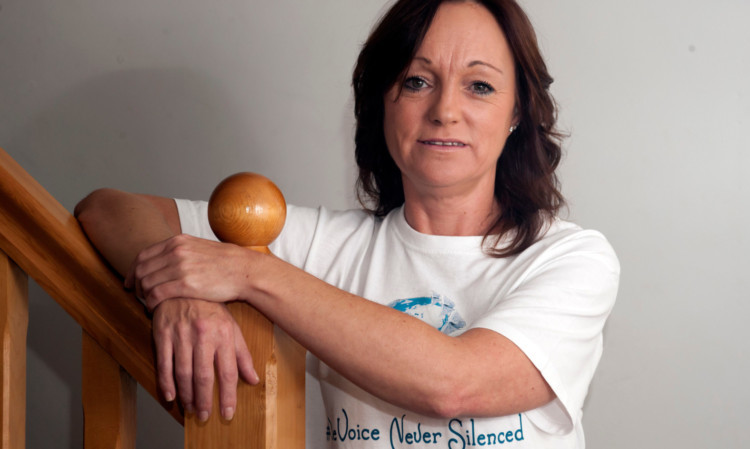
A battered wife wants tougher laws allowing domestic violence victims to keep their addresses secret in court.
Eve Thomas claims a court official threatened her with jail after she refused to reveal her “safe house” address for fear of attack by her violent ex-husband. Mum-of-two Eve said she was facing a 14-day jail sentence for contempt of court if she did not disclose her hideaway.
The justice ministry said judges have powers to keep vulnerable people’s addresses secret. But charity Refuge says hundreds of women victims are still being put in danger by being forced to reveal where they live at civil court hearings.
Eve, 45, is now urging a change in the law to make sure addresses cannot be passed on to protect victims and their families.
She said: “There could be victims all over the country who have to publicly reveal in court where they are living, often in front of their abusers. This flaw in the law is putting victims and their children in danger.”
Eve was set on fire and had bones broken by her ex in a campaign of hate. She spent 21 years with him before summoning the courage to escape three years ago. Eventually, she fled with her youngest daughter to a safe house in northern England.
But an official asked her to disclose her hideaway and phone number after she was hauled before a small claims court by a former friend over an unpaid debt.
Eve offered to hand over her details in a sealed envelope if the judge could guarantee they would not be passed to the claimant a friend of her ex who was present in court.
But the claimant would be able to apply for the judge to release the details, so Eve repeatedly refused.
She said: “I was crying and shaking but there was no way I was going to tell them my safe house address. It was so distressing but I was willing to go to jail to keep it a secret.”
No further action was taken against Eve after she paid £929 in court fees and the outstanding debt. But her ordeal has sparked a campaign and an online petition calling for “Eve’s Law”, allowing proven abuse violence victims the right to keep their addresses secret in court.
The campaign is supported by London-based human rights lawyer David Malone.
He said: “This is about striking a balance of rights. If someone can prove that they are a victim of domestic violence, they should be allowed some right to privacy.
“This would need a very small change in the law so that there is a mechanism where the address can be put into a secure database, so that someone with authority can see it. It would not be read out in court in order to protect the victim.”
A spokesman for the Ministry of Justice said: “The courts regularly handle extremely sensitive cases and have a range of measures to support vulnerable court users, putting their safety and security first.”
He said in cases where a victim is also a debtor, a judge will have to demand an address to claim back money owed.
“Such action will always be at the discretion of a judge, taking account of individual circumstances,” he said.
Refuge chief executive Sandra Horley, said: “Every day Refuge supports hundreds of vulnerable women and children experiencing domestic violence.
“We need to be doing everything we can to mitigate, not increase the risks.”

Enjoy the convenience of having The Sunday Post delivered as a digital ePaper straight to your smartphone, tablet or computer.
Subscribe for only £5.49 a month and enjoy all the benefits of the printed paper as a digital replica.
Subscribe